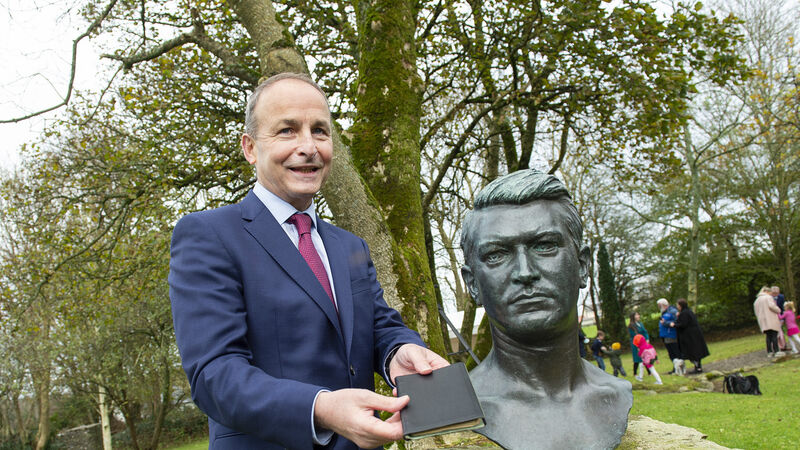Micheál Martin on what we fail to understand about the life of Michael Collins

Micheál Martin in Clonakilty, Co Cork, at the official handover of the Michael Collins diaries to the National Archives. Picture: Julien Behal Photography
As we mark the 100th anniversary of the death of Michael Collins there is no doubt that he is a worthy hero for our country.
While we have all grown up knowing about certain moments in his life, we often fail to understand what set him apart, particularly in the tense months of 1922.













